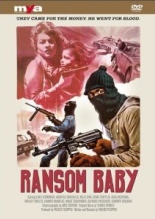
 I have a theory that any movie opening with an attractive swimming nude in the ocean can’t be bad at all. You know: Jaws, this. In his opening sequence, director Pavlos Filippou (Black Aphrodite) goes where Steven Spielberg didn’t, couldn’t and wouldn’t: ass massage! After all, this Eurocrime obscurity hails from Greece, so expect sinning, shooting and sex, sex, sex.
I have a theory that any movie opening with an attractive swimming nude in the ocean can’t be bad at all. You know: Jaws, this. In his opening sequence, director Pavlos Filippou (Black Aphrodite) goes where Steven Spielberg didn’t, couldn’t and wouldn’t: ass massage! After all, this Eurocrime obscurity hails from Greece, so expect sinning, shooting and sex, sex, sex.
The potent posterior belongs to Cristina (Sasa Kastoura, The Abductors), a MILFy member of the Latin American Revolutionary Movement who uses her feminine wiles to convince George Evans to put his hands to one other good use: namely, smuggling a casino’s security plans from his employer. Cristina’s group isn’t exactly flush with cash currently, and could use some serious bank to buy weapons. With said security plans in their possession, she and her cohorts plot to break into the casino vault, conveniently when a bunch of oil tycoons are in town throwin’ around dough.
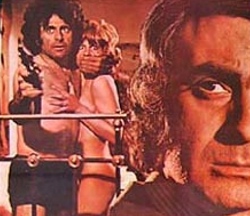 Using the ol’ short-circuited computer trick (mind you, technology of the era equalled blinking light panels) and a VW bus with an IBM sticker as getaway, the revolutionaries succeed. They learn how to hide their Benjamins in cigarettes in order to travel inconspicuously, but what if they get caught? It’s then that the title finally comes into play, as Ransom Baby suddenly turns on its head from heist film to kidnapping thriller.
Using the ol’ short-circuited computer trick (mind you, technology of the era equalled blinking light panels) and a VW bus with an IBM sticker as getaway, the revolutionaries succeed. They learn how to hide their Benjamins in cigarettes in order to travel inconspicuously, but what if they get caught? It’s then that the title finally comes into play, as Ransom Baby suddenly turns on its head from heist film to kidnapping thriller.
For an obviously rushed production — the very nature of the genre called for it — the film holds high value in the departments of music (Yannis Spanos’ sticky jazz score), direction (Filippou owns an eye for interesting angles, notably with spiraling staircases) and story, which isn’t as simple as one may assume. The ending’s well-staged shipyard shootout plays for keeps, which may infuriate some viewers. However, in Eurocrime, it’s welcomed with open arms. —Rod Lott

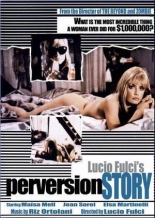
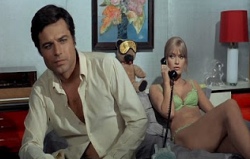 But just what is going on? Can George figure it out before the cops find enough evidence to put him behind bars and possibly on death row? And since this thing is titled
But just what is going on? Can George figure it out before the cops find enough evidence to put him behind bars and possibly on death row? And since this thing is titled 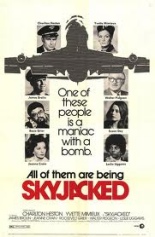
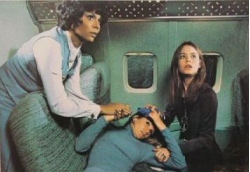 As was de rigueur for the all-star disaster genre, this one’s rife with subplots, such as Mariette Hartley about to give birth, or Walter Pidgeon’s senator trying not to appear like an out-of-touch D.C. asshole by rapping with Rosey Grier about such alien concepts as “rock” and “jazz.”
As was de rigueur for the all-star disaster genre, this one’s rife with subplots, such as Mariette Hartley about to give birth, or Walter Pidgeon’s senator trying not to appear like an out-of-touch D.C. asshole by rapping with Rosey Grier about such alien concepts as “rock” and “jazz.” 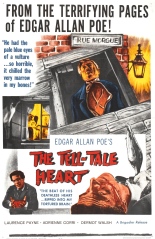
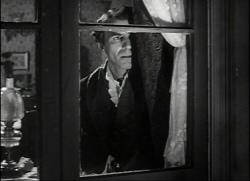 Whether you’ve read the original story or not, you know how it goes from there, and that’s why the movie holds no suspense. But it’s made well, in a crisp, buttoned-up, British style, co-written by Brian Clemens, who brought equal class to so many
Whether you’ve read the original story or not, you know how it goes from there, and that’s why the movie holds no suspense. But it’s made well, in a crisp, buttoned-up, British style, co-written by Brian Clemens, who brought equal class to so many 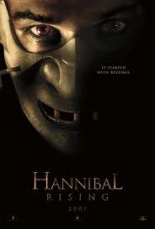
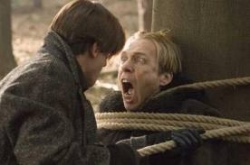 The only scenes that resonate are those in which Hannibal exacts his revenge, and we’re made to cheer him along. Yet they’re not built with any shocks; they simply go through the motions. And what to make of his third-act transformation into Action Hero, leaping atop ships to save Gong Li? At least on the page, scenes like this can’t look silly.
The only scenes that resonate are those in which Hannibal exacts his revenge, and we’re made to cheer him along. Yet they’re not built with any shocks; they simply go through the motions. And what to make of his third-act transformation into Action Hero, leaping atop ships to save Gong Li? At least on the page, scenes like this can’t look silly.